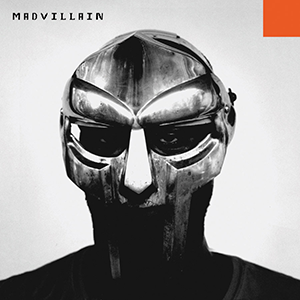
This past month, guitar hero Johnny Marr received NME magazine’s “Godlike Genius Award” for his long and distinguished career with artists such as The Pretenders, Modest Mouse, The Cribs, Billy Bragg, Electronic, The Healers and, most importantly, as a key component of the eternally popular ’80s indie band The Smiths. On paper Marr’s career would appear to be a glittering success, yet on closer inspection he has left a lot to be desired.
It’s safe to say that ever since The Smiths disbanded in 1987, Marr has struggled to find his best form in his various endeavours. His collaboration with Morrissey was certainly the most fruitful of his career, for not only him but also the controversial singer, as they created classic tracks like “This Charming Man,” “Heaven Knows I’m Miserable Now” and “There is a Light That Never Goes Out.”
So, at the ripe old age of 49, Marr has finally decided to release his debut solo album “The Messenger.” Taking influence from his hometown of Manchester, and his separation from it, Marr had the intention of filling the gap in the market for an album of “artful British guitar pop with hooks that would be exciting played live in little clubs,” he told Mojo magazine in October of last year. The album is also loosely set to the “romantic notion” of Marr leaving school to set out on his ambitious path to musical stardom, along with the feelings and beliefs he carried through that period.
Drawing inspiration from his teenage influences of Roxy Music, Sparks and T-Rex as well as his Mancunian contemporaries in electronic dance pioneers New Order and punk rockers The Buzzcocks, Marr aimed to use all his resources to create his solo masterpiece. Elements of Marr’s musical past are found scattered throughout the album, cleverly interwoven with his predictably brilliant guitar playing. For the discerning music fan the album will be a treat to dissect each songs influence from Marr’s musical catalogue.
The explicit raw ambition that accompanied the ’70s punk movement is evident on the record in the tracks “I Want the Heartbeat” “Lockdown” and “Generate Generate.” “Generate Generate” is layered with frenetic guitars and heavy drum beats that complement Marr’s short frantic lyrical delivery: “Sensations versus thinking/An equation all good for nothing/same old song, what’s going on?/Calculate, calculate, calculate.”
Although Marr’s punk influences are certainly evident throughout, the biggest comparable musical style stems from the much more developed, controlled and expansive styles of music found in the following post-punk era. The northern soul -inspired opening track “The Right Thing Right” is a blistering start to the album, with echoes of Marr’s former group The Cribs in its melodic, memorable hook making it one of the stand out tracks. Title track “The Messenger” is a soulful powerhouse akin to The Stone Roses and Charlatans in their psychedelic heyday. An empathic minute-long guitar solo in the middle showcases Marr’s renowned playing at its absolute best.
Along with the plethora of inspiration Marr has drawn upon, it will be a pleasant surprise to his fans to hear his trademark “jingly jangly” melodies from The Smiths make a welcome return on his signature Fender Jaguar guitar. Marr admitted to the Guardian, “In the past, I’d have shredded it (Smith’s sound) because it sounded too much like me,” but on “The Messenger” he has embraced his former self, saying, “it just felt so sweet and so genuine, it seemed important to just go with it.” This guitar style is most prominent on “European Me,” where Marr uses an explicitly similar riff to The Smiths track “Rusholme Ruffians.” Also, the penultimate song “New Town Velocity” would have fit right at home on “The Smiths” back-catalogue as well as being one of the lyrically stronger efforts, recounting his move away from home and school in a rare autobiographical insight.
One of the key questions before the album’s release was whether or not Marr could make the transition from music-making wingman to center stage lead vocalist. Sadly it doesn’t quite work out. Musically the album is extremely good, bar the lackluster “Word Starts Attack,” but it’s let down by Marr’s underwhelming vocal performance. Too often Marr’s voice fails to stand out or add the gravity needed to the well-crafted musical foundations to propel a majority of the tracks to become something special.
It was once said that New Order wrote lyrics by passing a piece of paper around the group for each member to write one line, and at points on “The Messenger” the lyrics seem equally random in construction. Verses like: “To see it in something/ Life you want it takes long/To see him so happy, you find you talking if you want/ Don’t wanna be a messenger” struggle to convey meaningful or memorable purpose making the biggest irony of the album the fact that Marr doesn’t have a message to convey in his lyrics.
Marr’s long awaited solo album is an enjoyable voyage through the journeyman’s extensive career, with a brilliant post-punk flair running throughout the music and guitar solos galore. It is a nostalgic record, hovering between the post-punk ’80s and the guitar-centric Britpop England of the ’90s in its style, which makes for a wonderful look at Marr’s influences. Marr’s brilliantly crafted guitar riffs are crying out for a strong, purposeful frontman who can lyrically charge each song with something special, yet sadly that isn’t Marr. One can only wonder if he knows a charming man to fill the void…
Jonathan Smith can be reached at [email protected].












